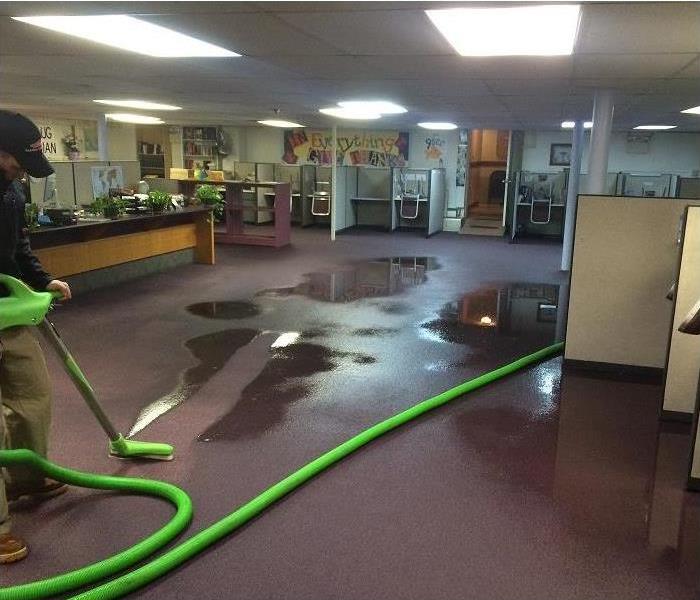Disasters Happen- How to Prepare Your Business and Recover
2/8/2020 (Permalink)
 An estimated 25% of companies are unable to resume operations after a major disaster, according to the Insurance Institute for Business and Home Safe
An estimated 25% of companies are unable to resume operations after a major disaster, according to the Insurance Institute for Business and Home Safe
A natural disaster can often catch small businesses off-guard. In fact, it's estimated that 25 percent of companies are unable to resume operations after a major disaster, according to the Insurance Institute for Business and Home Safety.
How quickly a company is able to recover after a disaster usually determines how succesful they are in the future. Adequate preparation creates trust among your clients and will allow your business to continue without too much damaging effects.
Here are the six ways small businesses should prepare for a natural disaster.
1. Make a reliable emergency response plan
To protect your employees and clients, business owners should know all the proper evaucation routes and make sure everyone else is informed as well. It is recommended to post escape routes and plans throughout the building and keep emergency phone numbers readily available.
2. Create a survival kit
Every business in operation should have a survival kit with disaster-ready items, such as a flashlight, plastic sheeting, garbage bags, etc. Consider storing a digital camera as well to take photos of the property damage for your insurance company.
3. Ensure that you have enough insurance coverage
Before a natural disaster is given the opportunity to blow your business away, make sure to review your insurance policies. What kind of coverage do you have on your facilities and properties? Are they enough to insure your recovery if a disaster does physically destroy your business? Small business owners should also consider business interrruption insurance in case you have to close your doors for a substantial amount of time.
4. Back-up all your electronic data
With most business transactions conducted electronically, it is crucial that files and data are backed up and saved. A company may not be able to reestablish itself without important financial and client databases. It is recommended to save all your files—including the last few years of taxes—at least two times and store one in a waterproof container at the office, and the other in an offsite facility. Anything that you are currently working on should be mailed to yourself on a Web service that can be accessed from any computer.
5. Determine a communication strategy
Plan a strategic and efficient way to communicate with employees and clients while your business operations are down. Also, make sure everyone understands their communication responsibilities. For example, who is going to be responsible for contacting the insurance company? Or who will contact clients to update them? Or who will be the spokesperson in case information needs to be relayed immediately?
6. Consider temporary relocation if needed
If you can't get into your office, how do you continue business operations? Think about another location that you may work at if disaster strikes.






 24/7 Emergency Service
24/7 Emergency Service